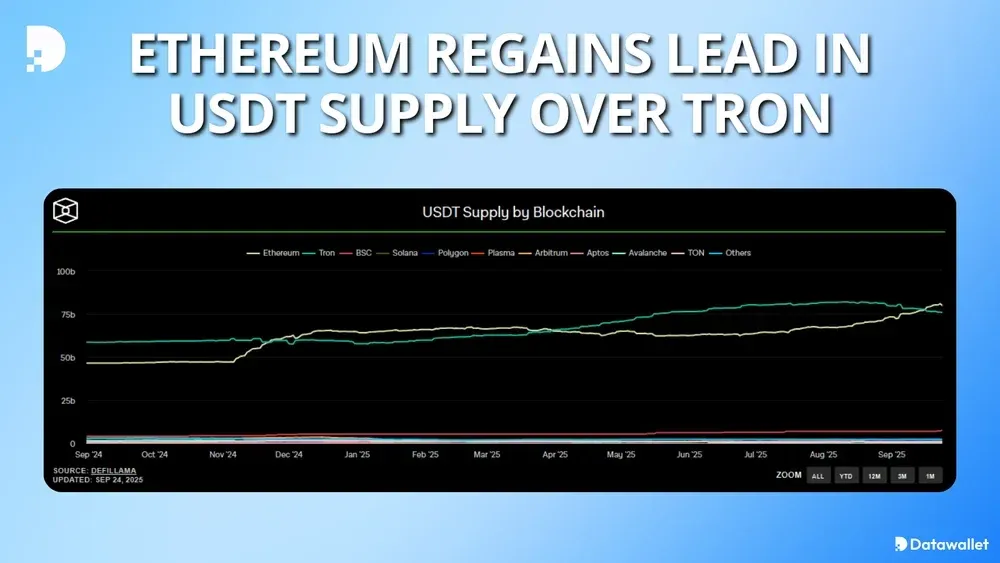Hyperliquid Launches USDH Stablecoin Amid Rival Pressure

GM. Hyperliquid has launched its validator-approved USDH stablecoin after Native Markets won the bid, debuting with $15 million pre-minted and $2.2 million in first-day trading volume.
Meanwhile, BNB Chain proposes fee cuts and faster blocks, Uniswap rolls out Compact v1 to tackle cross-chain fragmentation, and CZ denies reports of YZi Labs raising external funds.
Here are all the details. 👇
Hyperliquid Launches USDH Stablecoin Amid Rival Pressure
Hyperliquid launched its validator-approved USDH stablecoin Wednesday after Native Markets won a hotly contested bid against Paxos, Frax, and Agora. Roughly $15 million USDH was pre-minted before launch, and trading opened with $2.2 million volume in a USDH/USDC market.
Native Markets structured USDH as fully backed by cash and short-term US Treasuries, with transparency provided through onchain oracles and reserve audits. Half of all USDH revenues will flow into Hyperliquid’s Assistance Fund, supporting protocol-driven HYPE token buybacks and ecosystem incentives.
The USDH debut comes as BNB Chain-based Aster challenges Hyperliquid’s dominance, flipping it in revenue despite trailing in trading volumes. Aster’s token surged 19% to $2.31 and a $3.8 billion market cap, while HYPE dropped 6% to $44.81.
Community chatter questioned whether validators favored Native Markets unfairly, though prediction markets heavily backed its victory before voting concluded. Myriad users have since turned bearish on HYPE, with 73% predicting declines toward $39 before any rebound toward $69.
BNB Chain Proposes Fee Cuts and Faster Blocks
BNB Chain validators proposed lowering gas fees from 0.1 Gwei to 0.05 while reducing block times. Developers said the change would lower average transaction costs to half a cent, rivaling Solana and Base. The initiative follows previous reductions, aligning with the strategy of maximizing affordability while keeping validator rewards above minimum thresholds.
The proposal coincides with surging activity on Aster, the decentralized perpetuals exchange that has overtaken HyperLiquid in volume. Aster reported $29 billion in daily trading and $7.2 million in revenue, outpacing competitors significantly. Token markets reflected the shift, with ASTR climbing 37% while HYPE lost value, underscoring shifting liquidity trends.
Uniswap Introduces Compact v1 to Address Fragmentation
Uniswap Labs launched Compact v1, an ERC-6909 protocol designed to reduce fragmentation in cross-chain liquidity markets. The system manages “resource locks” allowing developers to allocate assets securely while enabling atomic commitments across multiple blockchain environments. Uniswap said the tool was created to support composability and standardization for applications in decentralized finance.
Compact v1 introduces roles for allocators, arbiters, tribunals, and emissaries to enforce commitments and verify conditions. Early adopters include LIFI and Rhinestone, which plan to use the system for cross-chain swaps. Smart contract auditing companies OpenZeppelin and Spearbit completed reviews, and Uniswap will extend coverage through a bug bounty program.
CZ Rejects Reports of YZi Labs Raising Funds
Binance co-founder Changpeng Zhao denied reports that YZi Labs intends to raise external capital for investments. Zhao said the rebranded venture firm has never sought outside investors since formation, refuting comments attributed to co-founder Ella Zhang. He also emphasized YZi operates independently, countering speculation about its relationship with Binance and its corporate structure.
The Financial Times reported Zhang suggested YZi may consider external fundraising when it matures expertise in biotech and AI. Zhao countered that remarks were misrepresented and clarified YZi remains focused on long-term, internally funded investment strategies. Despite controversy, YZi continues to influence crypto venture capital with early-stage bets on leading blockchain startups.
Data of the Day
Ethereum surpassed Tron in circulating USDT supply, reaching $80 billion after trailing its rival earlier this year. Analysts said the rebound underscores Ethereum’s institutional-grade infrastructure and DeFi depth, outweighing Tron's advantage of lower transaction costs. Stablecoin activity on Ethereum now approaches one million transactions per day, signaling active usage beyond static holdings.
Traditional finance institutions increasingly integrate stablecoins into payment systems, favoring Ethereum’s regulatory clarity and established settlement environment. Companies like PayPal and BlackRock are introducing stablecoin products that align with Ethereum’s infrastructure. Experts predict that Ethereum’s advantage in stablecoin liquidity could entrench its role as the dominant blockchain for institutions.

More Breaking News
- ECB board member Piero Cipollone said the digital euro is unlikely before 2029, blaming legislative delays in European Parliament despite ministerial support.
- Tether is reportedly seeking a $500 billion valuation by raising up to $20 billion, which would rank it alongside SpaceX and OpenAI.
- Acting CFTC Chair Caroline Pham announced plans to allow tokenized collateral like stablecoins in derivatives markets, calling it America’s potential Golden Age of Crypto.
- The FTX Recovery Trust sued Genesis Digital Assets for $1.15 billion, alleging Sam Bankman-Fried recklessly invested commingled customer funds in the miner.
- Prediction market protocol Myriad launched a revenue share program rewarding users and builders with USDC and Myriad Points for referrals and integrations.
- Ethereum ETFs now represent 15% of spot ETH volume, highlighting institutional adoption but raising concerns about centralization of custody and idle assets.
- A US judge denied Justin Sun’s request to block Bloomberg from publishing his crypto holdings, citing his own prior public asset disclosures.
- Kraken donated $2 million to pro-Trump PACs supporting crypto privacy, with co-CEO Arjun Sethi framing digital assets as constitutional financial rights.
For the latest updates on digital asset markets, follow us on X @Datawalletcom.
.webp)
Written by
Jed Barker
Editor-in-Chief
Jed, a digital asset analyst since 2015, founded Datawallet to simplify crypto and decentralized finance. His background includes research roles in leading publications and a venture firm, reflecting his commitment to making complex financial concepts accessible.







